Max van Duijn
Reasoning Promotes Robustness in Theory of Mind Tasks
Jan 23, 2026Abstract:Large language models (LLMs) have recently shown strong performance on Theory of Mind (ToM) tests, prompting debate about the nature and true performance of the underlying capabilities. At the same time, reasoning-oriented LLMs trained via reinforcement learning with verifiable rewards (RLVR) have achieved notable improvements across a range of benchmarks. This paper examines the behavior of such reasoning models in ToM tasks, using novel adaptations of machine psychological experiments and results from established benchmarks. We observe that reasoning models consistently exhibit increased robustness to prompt variations and task perturbations. Our analysis indicates that the observed gains are more plausibly attributed to increased robustness in finding the correct solution, rather than to fundamentally new forms of ToM reasoning. We discuss the implications of this interpretation for evaluating social-cognitive behavior in LLMs.
Baba is LLM: Reasoning in a Game with Dynamic Rules
Jun 23, 2025
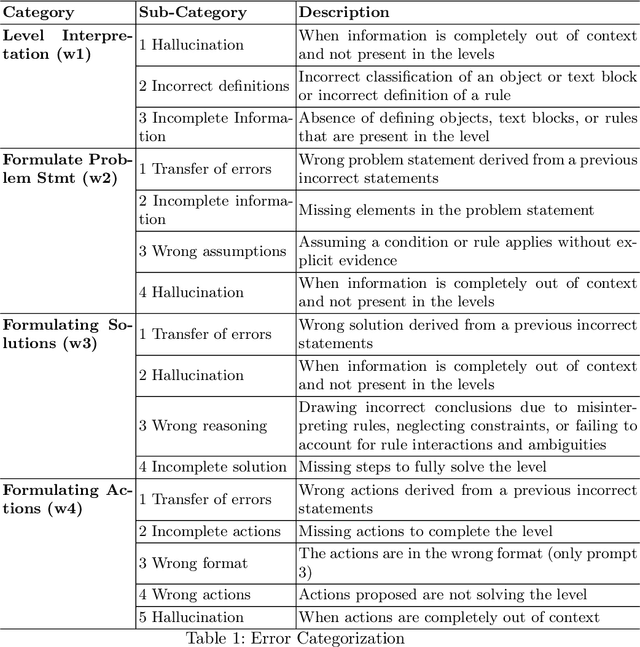
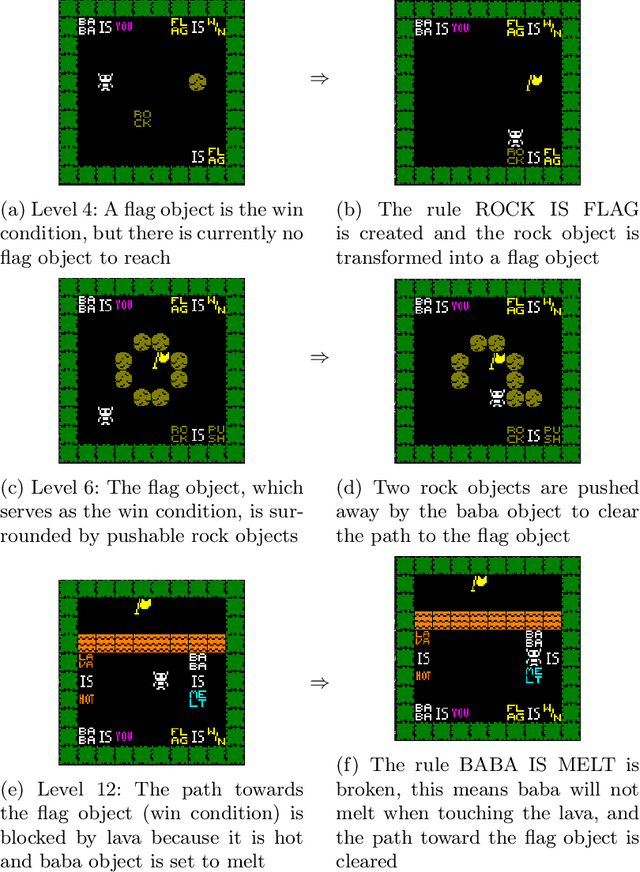
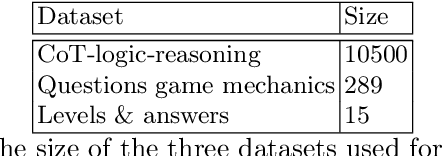
Abstract:Large language models (LLMs) are known to perform well on language tasks, but struggle with reasoning tasks. This paper explores the ability of LLMs to play the 2D puzzle game Baba is You, in which players manipulate rules by rearranging text blocks that define object properties. Given that this rule-manipulation relies on language abilities and reasoning, it is a compelling challenge for LLMs. Six LLMs are evaluated using different prompt types, including (1) simple, (2) rule-extended and (3) action-extended prompts. In addition, two models (Mistral, OLMo) are finetuned using textual and structural data from the game. Results show that while larger models (particularly GPT-4o) perform better in reasoning and puzzle solving, smaller unadapted models struggle to recognize game mechanics or apply rule changes. Finetuning improves the ability to analyze the game levels, but does not significantly improve solution formulation. We conclude that even for state-of-the-art and finetuned LLMs, reasoning about dynamic rule changes is difficult (specifically, understanding the use-mention distinction). The results provide insights into the applicability of LLMs to complex problem-solving tasks and highlight the suitability of games with dynamically changing rules for testing reasoning and reflection by LLMs.
Proceedings of 1st Workshop on Advancing Artificial Intelligence through Theory of Mind
Apr 28, 2025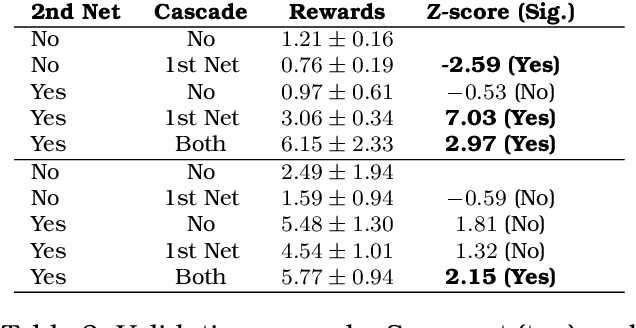


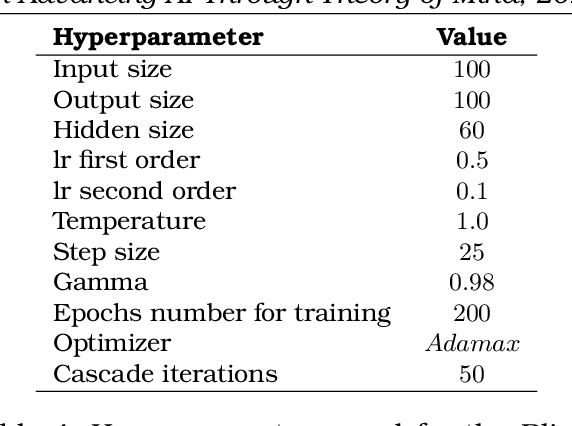
Abstract:This volume includes a selection of papers presented at the Workshop on Advancing Artificial Intelligence through Theory of Mind held at AAAI 2025 in Philadelphia US on 3rd March 2025. The purpose of this volume is to provide an open access and curated anthology for the ToM and AI research community.
Agentic Large Language Models, a survey
Mar 29, 2025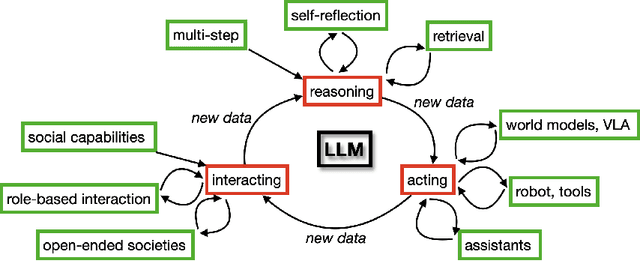
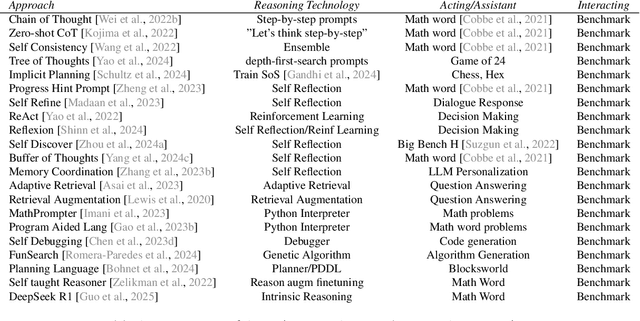
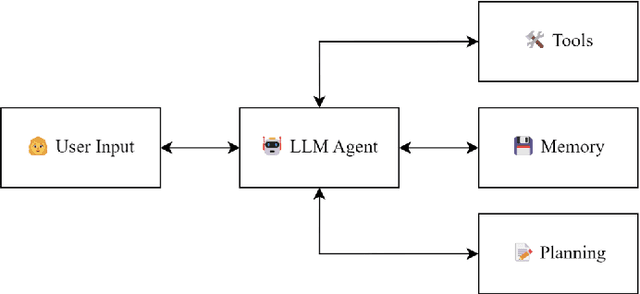
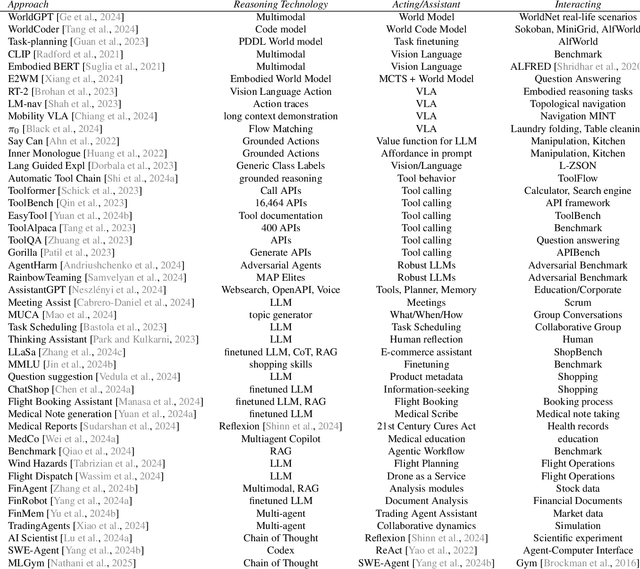
Abstract:There is great interest in agentic LLMs, large language models that act as agents. We review the growing body of work in this area and provide a research agenda. Agentic LLMs are LLMs that (1) reason, (2) act, and (3) interact. We organize the literature according to these three categories. The research in the first category focuses on reasoning, reflection, and retrieval, aiming to improve decision making; the second category focuses on action models, robots, and tools, aiming for agents that act as useful assistants; the third category focuses on multi-agent systems, aiming for collaborative task solving and simulating interaction to study emergent social behavior. We find that works mutually benefit from results in other categories: retrieval enables tool use, reflection improves multi-agent collaboration, and reasoning benefits all categories. We discuss applications of agentic LLMs and provide an agenda for further research. Important applications are in medical diagnosis, logistics and financial market analysis. Meanwhile, self-reflective agents playing roles and interacting with one another augment the process of scientific research itself. Further, agentic LLMs may provide a solution for the problem of LLMs running out of training data: inference-time behavior generates new training states, such that LLMs can keep learning without needing ever larger datasets. We note that there is risk associated with LLM assistants taking action in the real world, while agentic LLMs are also likely to benefit society.
 Add to Chrome
Add to Chrome Add to Firefox
Add to Firefox Add to Edge
Add to Edge